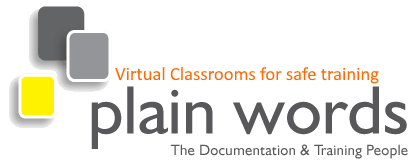Training Bulletin Issue 71
It's not how you learn it, it's how you write it
Should students today be allowed to look things up on the internet during exams? The annual ritual of waiting for school results is now over, but while it was happening, several of my friends with university-aged offspring discussed this and other divisive questions.
Back in my day, the issue was whether we should be allowed to have calculators during exams (we weren't, haven't times changed…) Before that, it was log tables. What do we consider a valuable skill – the ability to retain information or crunch numbers, against the skill of understanding, analysing and processing information? That debate is sure to continue.
What has never been optional, however, is the ability to communicate information. That's essential, regardless of whether it's information you've memorised or results you've produced through analysis. If you can't convey your ideas clearly, especially in writing, it's going to hinder your academic progress and your career.
It's not about you
Writing can be hard to follow because some people make the document about the writer instead of the reader. To make sure this isn't you, think about your vocabulary – does the reader understand those technical terms or abbreviations? Rather than assume they do, should you define them?
Does the reader really want or need to know that particular point? Is it relevant to their job and how they will use the information? A common complaint from people evaluating proposals is that the content is often about what the bidder's product or service can do rather than answering the specific questions the client has asked.
We've all read documents where the author is writing to impress rather than express; don't let that be you. Why do so many people think business writing needs to be extremely formal, when that formality gets in the way of understanding?
Here's an example from the preface of a European Union style guide:
The Interinstitutional style guide has been produced with these things in mind. This publication, continuing a process begun in 1993 with the Vade-mecum for editors, is the fruit of a long round of negotiations in which all the European Union institutions participate actively.
Here is the same text put more simply.
We have created the Interinstitutional style guide with these things in mind. The process began in 1993 with a guideline for editors, after talks with all European Union institutions.
Why would anyone prefer to struggle with the original version?
Some practical tips to help you write more clearly
Albert Einstein said, "Any intelligent fool can make things bigger and more complex… It takes a touch of genius – and a lot of courage to move in the opposite direction."
1. Use simple vocabulary
In 2012 an American engineer and cartoonist created a poster explaining the design of the Saturn 5 rocket with only the thousand most commonly-used words in English .
While you don't have to go that far, look back over something you've written and ask yourself, "Would my best mate understand this?" Assuming they aren't experts in the same field as you, rewrite it using words they would understand.
2. Relate it to something the reader already knows
The movie industry understands this one – think about how many times you see a new release described using what's called the "X meets Y" formula: Skyscraper! Die Hard meets The Towering Inferno! Or there's the "X in Y" variation: Jupiter Ascending is Cinderella in Space!
3. Include illustrations
It's a cliché for a reason: a picture really does tell a thousand words. You can often relate complex concepts much more concisely with pictures than with text. Show, don't tell. This also helps if you are writing for a multi-lingual audience.
4. Make it easy for skim readers
No matter how important you think your content is, a lot of your readers will only skim through it quickly. Long, solid blocks of text make this difficult and if your document looks like that, those readers might grudgingly wade through it (resenting you the whole time), but it's much more likely they'll just move on to the next thing awaiting their attention.
Break your text up wherever possible using:
- Subheadings
- Short paragraphs
- Illustrations
- Bulleted lists
Would you have read this far if this bulletin had been a solid block of text?
Poor communication costs companies time and money
Try applying those four ideas to the next email or report you write. We have lots more suggestions on how to write more clearly, whether it's emails, reports reports, or more specialist forms of business writing
We can also create bespoke courses and exercises to address your specific needs. Contact us to find out more.

